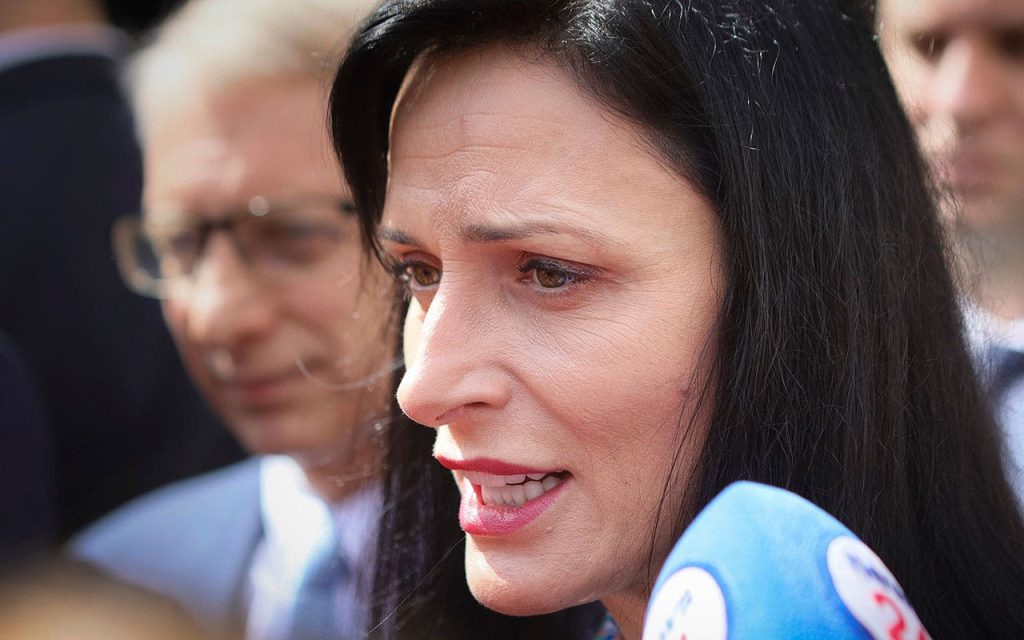Maria Gabriel, Bulgaria’s prime minister-designate, withdrew her nomination on Monday due to failed negotiations between political coalitions. This decision came after two weeks of discussions between the center-right GERB-UDF coalition and the reformist coalition led by We Continue the Change. The original plan was for Gabriel to replace outgoing Prime Minister Nikolay Denkov on March 6, but the transition fell through, leading to speculation about early elections. The two coalitions had agreed on a rotation system for the top job, with each taking a turn as prime minister for nine months at a time. However, the negotiations broke down over issues related to judicial reform, leadership of the security services, and the composition of Gabriel’s Cabinet.
Gabriel, a former EU commissioner, was proposed as prime minister by the largest group in parliament, GERB-UDF. Just hours before withdrawing her nomination, Gabriel and her negotiating team indicated that discussions had reached an impasse and that early elections were likely. The failed transition between Denkov and Gabriel led to accusations between the two coalitions, with each side blaming the other for the breakdown in negotiations. Despite Denkov’s appeal for cooperation and adherence to the original agreement, the political rivals were unable to come to a resolution, plunging Bulgaria into a new crisis.
The withdrawal of Gabriel’s nomination and the potential for early elections could create further instability in Bulgaria, which is already facing challenges as the European Union’s poorest member country. The failure of the two political coalitions to achieve a smooth transition of power reflects deeper divisions within Bulgarian politics and raises concerns about the country’s governance and stability. The talks between GERB-UDF and We Continue the Change were marked by partisan wrangling and disagreements over key issues, highlighting the challenges of forming a cohesive government in Bulgaria’s fragmented political landscape.
As Bulgaria grapples with the aftermath of Gabriel’s withdrawal and the possibility of early elections, there are fears that the political crisis could deepen and further undermine the country’s democratic institutions. The breakdown in negotiations between the two coalitions has cast a shadow over Bulgaria’s political future and raised doubts about the ability of its leaders to govern effectively. The failure to reach a consensus on key issues such as judicial reform and security services leadership points to broader challenges facing Bulgaria’s political system and the need for a more cohesive and stable government.
Despite the setbacks and uncertainties facing Bulgaria, there remains a glimmer of hope for a resolution to the political crisis. The withdrawal of Gabriel’s nomination has prompted calls for renewed dialogue and cooperation between the political parties to avoid further instability. As Bulgaria navigates these turbulent times, it is imperative for its leaders to prioritize the country’s interests and work together to find common ground on critical issues. By demonstrating a commitment to democratic values and the rule of law, Bulgaria can overcome its current challenges and move towards a more stable and prosperous future.















